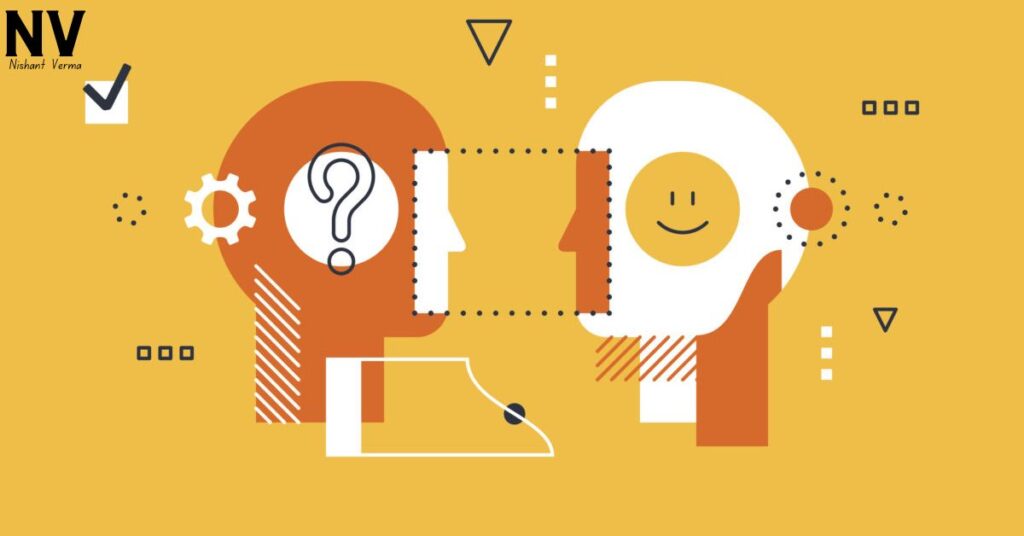The Persuasive Power in Sales
In the realm of Persuasion in sales, where influence shapes transactions, understanding the science of persuasion is a game-changer. In this comprehensive guide, we’ll unravel the intricacies of persuasive techniques, exploring the psychology behind them, and providing practical insights to empower Persuasion in sales professionals. From building rapport to closing deals, let’s delve into the science of persuasion in an easy and simple language.

Section 1: The Psychology Behind Persuasion
1.1 The Influence of Cognitive Biases
Explore the impact of cognitive biases on decision-making, showcasing how understanding these psychological tendencies can enhance persuasive strategies.
1.2 Emotional Triggers in Decision-Making
Discuss the role of emotions in decision-making, emphasizing how appealing to emotions can create a more compelling and Persuasion in sales pitch.
Section 2: Establishing Rapport and Trust: Persuasion in sales
2.1 The Power of Mirroring
Highlight the technique of mirroring, showcasing how subtly matching the behavior and language of the prospect builds rapport and trust.
2.2 Building Credibility through Authority
Discuss how establishing authority in a subject matter builds credibility, making prospects more likely to be persuaded by a knowledgeable and trustworthy source.
Section 3: Crafting Compelling Stories
3.1 The Narrative Advantage
Explore the effectiveness of storytelling in persuasion, showcasing how crafting compelling narratives engages emotions and resonates with the prospect.
3.2 Highlighting Success Stories
Discuss the impact of sharing success stories, emphasizing how real-world examples build trust and illustrate the positive outcomes of your product or service.

Section 4: Utilizing Social Proof
4.1 The Influence of Testimonials
Highlight the persuasive power of testimonials, showcasing how positive reviews and endorsements from satisfied customers build credibility and trust.
4.2 Showcasing Social Endorsements
Discuss the impact of showcasing social endorsements, emphasizing how visible support from influencers or industry experts can sway decision-making.
Section 5: The Art of Active Listening
5.1 Understanding Customer Needs
Explore the importance of active listening in Persuasion in sales, showcasing how truly understanding customer needs allows for more personalized and persuasive communication.
5.2 Responding with Empathy
Discuss the role of empathy in active listening, emphasizing how showing genuine concern and understanding contributes to a persuasive Persuasion in sales interaction.
Section 6: Creating a Sense of Urgency
6.1 Limited-Time Offers
Highlight the effectiveness of limited-time offers, showcasing how creating a sense of urgency can prompt quicker decision-making from prospects.
6.2 Exclusive Deals and Discounts
Discuss the impact of exclusive deals and discounts, emphasizing how the perception of special offers can drive immediate action.

Section 7: Handling Objections Effectively: Persuasion in sales
7.1 Acknowledging Concerns
Discuss the importance of acknowledging and addressing customer concerns, emphasizing how handling objections with empathy contributes to persuasive conversations.
7.2 Turning Objections into Opportunities
Explore strategies for turning objections into opportunities, showcasing how adeptly addressing concerns can strengthen the persuasive pitch.
Section 8: The Influence of Reciprocity
8.1 Offering Value First
Highlight the concept of reciprocity, showcasing how providing value upfront establishes a sense of obligation, making prospects more receptive to persuasion.
8.2 Personalized Recommendations
Discuss the impact of personalized recommendations, emphasizing how tailoring solutions to individual needs creates a reciprocal dynamic.
Section 9: Overcoming Decision Paralysis
9.1 Simplifying Choices
Explore the psychology of decision-making paralysis, showcasing how simplifying choices for prospects can alleviate anxiety and prompt action.
9.2 Guiding Decision-Making
Discuss the effectiveness of guiding decision-making, emphasizing how providing clear pathways and recommendations can lead to more persuasive outcomes.
Section 10: Ethical Persuasion Practices
10.1 Transparency and Honesty
Highlight the importance of transparency and honesty in persuasion, emphasizing how ethical practices build trust and contribute to long-term relationships.
10.2 Long-Term Relationship Building
Discuss the value of focusing on long-term relationships over quick wins, emphasizing how maintaining trust over time contributes to sustained success.
Conclusion: Elevating Sales Through Persuasion Mastery
In conclusion, the science of persuasion in Persuasion in sales is a nuanced dance between understanding human psychology and employing ethical and effective techniques. By mastering the art of building rapport, utilizing social proof, and addressing objections with empathy, sales professionals can elevate their persuasion skills and achieve lasting success.
So, whether you’re a seasoned sales veteran or a newcomer to the field, embrace the science of persuasion as a dynamic tool in your toolkit. Here’s to crafting compelling narratives, building trust, and mastering the art of persuasion for Persuasion in sales excellence.




